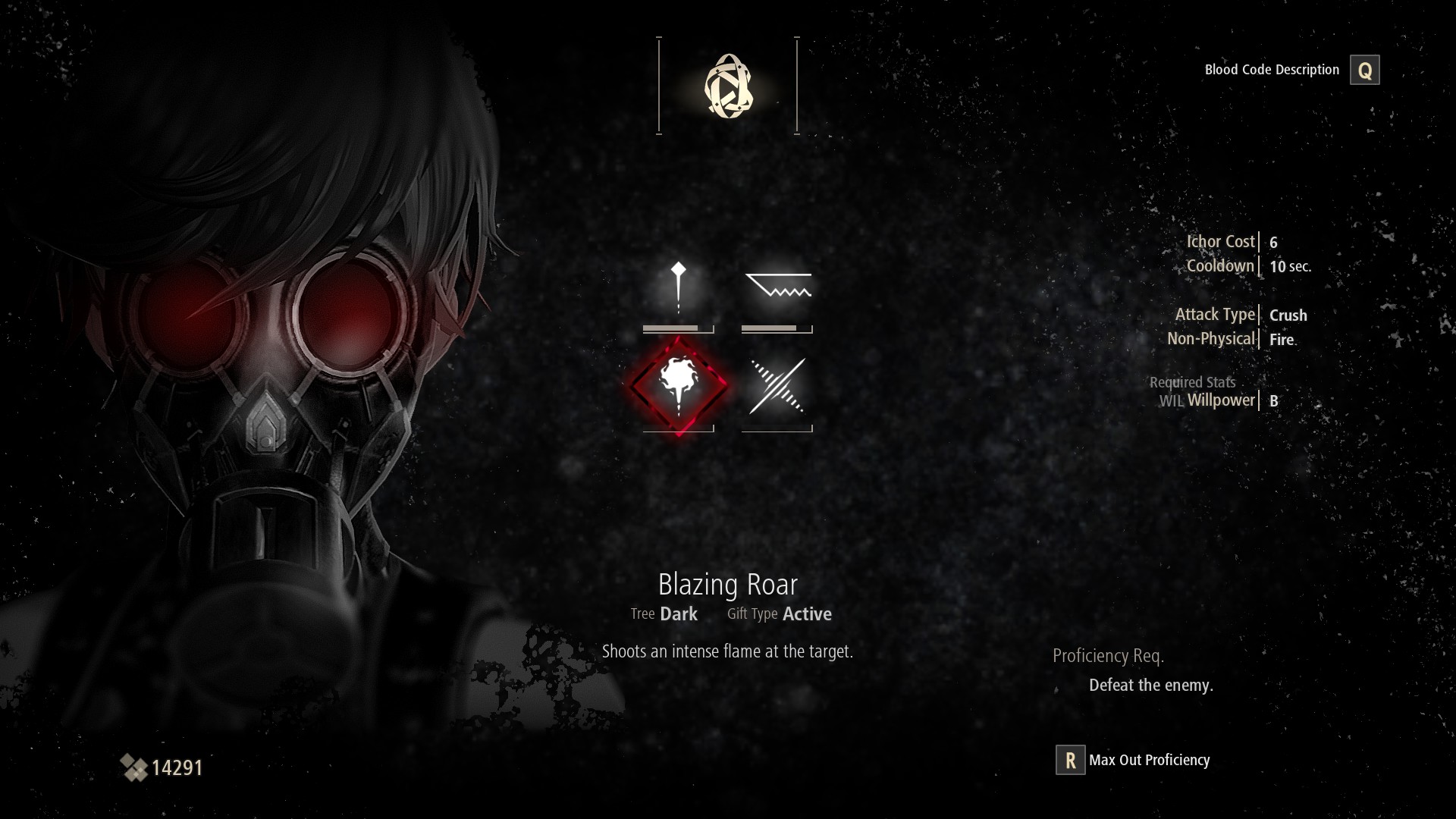Since the birth of Dark souls, now almost eight years ago, the release of fierce and dark RPGs follow each other faster and faster. First it was the annual From Software Release, now it’s not uncommon to see a new release each month in the brutal niche. Next in line is Code Vein, developed by Bandai Namco Studios. What makes this newcomer distinguished from the rest? Read on to find out!
In Code Vein, as is so often the case in this genre, you play a nameless protagonist who wakes up with no memory of who he is or what is going on. Unique is that this time you are not alone, you have a companion who will accompany you throughout the game and help out in battles. They can even revive you if you die in combat. The world is full of two types of characters, Revenants and Lost. Revenants are immortal, but they lose their memories upon death. This immortality is a parasite codenamed BOR, but comes with a cost. They need to regularly consume blood or they change into the second type of characters, the Lost. They remember nothing and their only focus is to feed. They are cursed, and are essentially the cannon fodder of the game.
It is on this background that our story takes place. The Revenants were created as a solution to the Great Collapse. Unfortunately, it was not enough to stop the war ans so the entire area was walled off and isolated from the rest of the world. The first attack failed, how the jail or fog was isolated and especially why, are questions that are answered in the adventure along the way.

While the premise of adventure sounds appealing, the implementation leaves a lot to be desired. Normally, the story in this genre plays an important part and is devoted a huge amount of detail, whether this is through environmental details or ambiguous wording in the description of your weapons. Code Vein does not participate here and delivers fragments of the story through hastily cobbled together cutscenes. They are also a little too spread out, and to compensate you receive a flood of information to compensate. Fortunately, the voice acting in all those scenes more than decent and a lot of the storyline can be pieced together in the so-called Vestige Fragments, crystallized memories of other Revenants which you can find scattered about the world.
The combat is where Code Vein excels. Stylish, fast and over-the-top, it’s exactly what it should be. Unlike Souls- games you do not feel like you are fragile or weak. The game is definitely on the easier end of the scale but not in the ways you might expect. The motif of the genre is discipline, and in that respect, Code Vein delivers a whole new formula. Senseless button mashing ensures that your stamina depletes too quickly and just shortens the time between the enemies damaging blows. Mistakes will still be punished, but you are given a little more slack. Combined with your combat partner, played by a friend or controlled by the game, and you’re stepping in to one of the first souls experiences that welcomes newcomers, (I’m looking at you Sekiro).

Under the hood, the gameplay gets even better. Here you have sixteen different parameters to carefully choose from. In Code Vein, use your so-called Blood Codes to change playing style. You get this from other Revenants (with or without their consent) and they affect your stats, which tool you can wear and what Gifts – special moves specific to that code – you can perform. What makes the system work so well is that you can change your Blood Code whenever you want. Couple this with the fact that you may use up to 5 trained Gifts regardless Blood Code and get the best build system that suits your play style perfectly. Some codes (because there are more than thirty) are obviously better than others but the fact that you can mix and match to your hearts content is an exceptionally well conceived addition to the genre.
The only hiccups for the gameplay are the enemies. These are generally bland and incredibly predictable. Again, a game doesn’t need to be difficult to be a part of the souls genre, but it has to remain challenging. Aside from the main bosses, the enemies feel repetitive and can serve as more of an annoyance than a challenge, especially when you are exploring an area for any missed collectibles.
Familiar Levels, New Devils
The last part of the souls genre is, of course, the level design. After all, what is the point of putting so much effort into the story and gameplay if your levels consist of drab, claustrophobic corridors and ultra predictable pitfalls? This is where Code Vein somewhat misses the mark. At best, Code Vein, is a pale copy of the most iconic levels in the genre; a white Anor Londo, a rip-off of Blighttown, a faint imitation of the Healing Church Workshop. These levels feel eerily familiar but at the same time, slightly disappointing because you miss out on that feeling of discovering a magnificent place for the first time.
The upside, however, is that Code Vein is a grey mass of pseudo secret passages and roads with quite a lot to explore. The lack of identity and clear reference points not only provide an optional trip but make sure the levels resemble a labyrinthine. While other souls games, (and even games like The Surge ) create a maze on purpose, it feels like Code Vein is almost procedurally generated. The levels improve greatly towards the second half of the game, you just have to play through the first 15 hours or so. Don’t get me wrong, the level design isn’t bad, far from it. I just wish that the quality matched other parts of the game. Truly a missed opportunity, because the game itself brings a lot of originality to the genre.
Code Vein blowing hot and cold at the same time. First, the gameplay resolves all expectations of the trailer, with fast-paced battles full of flashy moves and techniques. Its underlying system, Blood Codes, complements the anime vibe of the game and is truly the strongest point of this game. On the other hand, the playground where you can indulge in those skills leaves a lot to be desired. Uninspired and derivative are the keywords here, with a lacklustre soundtrack to accompany it. Nevertheless, it is a fun game, especially one that makes the genre accessible to less familiar players.
Formats: PC, Xbox One (Reviewed), PS4
Price: €49.99
Publisher: Bandai Namco Entertainment
Developer: Bandai Namco Studios
Release Date: 27th September 2019
Age Rating: PEGI 16
Review copy obtained from the publisher.
















